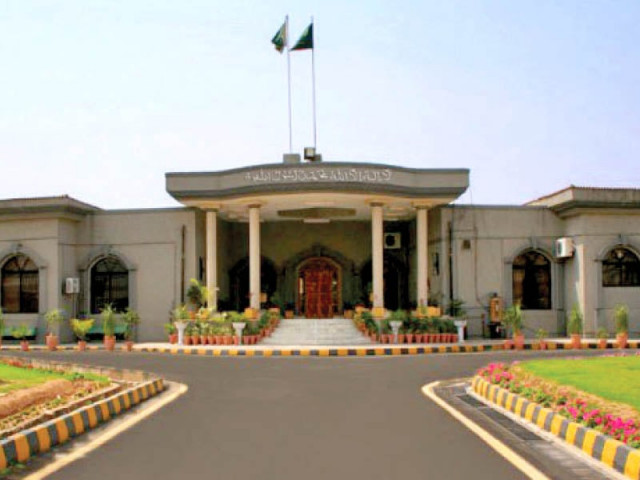Special bench formed to hear FGEHA pleas
Petitioners challenge IHC judgment that had scrapped revised policy on allotment of plots

The country’s top judge has formed a special bench to hear the petitions filed by the Federal Government Employees Housing Authority (FGEHA) and others against the Islamabad High Court’s judgment, which had the scrapped the government’s revised policy on the allotment of plots in the federal capital on subsidised rates to top judges, lawyers and bureaucrats.
The petitioners had applied for plots in sectors F14 and F15 of Islamabad and were successful in acquiring them.
The IHC judgment had declared the allotment of plots to judges, bureaucrats and government employees in the special sectors of the federal capital as “unconstitutional”. The IHC verdict had affected six serving and several retired judges.
"The revised policy and the scheme pursuant thereto, intended to be launched in sectors F-12, G-12, F-14 and F-15, are in derogation of public interest and violative of the constitutionally guaranteed rights of the people at large. Thus they are illegal, unconstitutional, void and without jurisdiction," read a judgment authored by IHC Chief Justice Athar Minallah on February 3 this year.
A three-judge special bench of the apex court, led by Justice Munib Akhtar and comprising Justice Muhammad Ali Mazhar and Justice Ayesha Malik, will take up the petitions on May 17.
The three members of the special bench are not beneficiaries of the plot allotment scheme.
It has been learnt that despite being offered, Justice Qazi Faez Isa, Justice Syed Mansoor Ali Shah, Justice Munib Akhtar and Justice Yahya Afridi of the Supreme Court as well as any serving judge of the IHC had not applied for the plots.
The IHC had declared that superior courts judges were not entitled to receive plots in a scheme launched by the FGEHA because no such privilege or entitlement had been included in the presidential orders.
“A person holding the office of a judge, whether in the Supreme Court, high court or even district court, enjoys a very exalted status. The expectation of the people from them is much more than from any other office holder. They are not federal government employees, nor employees of autonomous bodies. They cannot put themselves in a position of adversarial nature against the citizens. They hold an exalted office to serve the people,” read a 64-page judgment authored by Justice Minallah.
“The FGEHA and the federal government, by including the three categories as specified groups, have relegated them to the status of members for claiming benefits as per the decisions of the Executive Board. They have been treated as registered members of Membership Drive-II. The registered members of Membership Drive-I are at loggerheads and litigating for their rights and, resultantly, judges have also become a party to the litigation. The extraordinary treatment extended to the Supreme Court, Islamabad High Court and the District Courts of Islamabad as specified groups in itself raises questions,” the verdict read scrapping the government’s revised policy on the allotment of plots in the federal capital.
The judgment had also elaborated as to whether or not top courts judges were entitled to receive plots in a government scheme at lower prices.
The court in its ruling had stated that no civil servant, judge nor employees of other entities could claim, as of right, the allotment of State land at lower than the prevailing market price.
Several government servants, who were allotted plots, filed their petition in the apex court through Advocate Hafiz Ahsaan Ahmad Khokhar.
The petition contended that high court not exercise or enjoy suo motu jurisdiction under Article 199 of the Constitution and it was only on the application of an aggrieved person or on the application of any person with specific grounds or prayers and further there must exist a dispute before exercising judicial power by an aggrieved person within the meaning of Article 199 of the Constitution as an essential prerequisite to invoke the writ jurisdiction as declared by this court.
“Therefore, the impugned judgment dated 03-02-2022 suffers from gross illegality, is based on erroneous assumption of jurisdiction and the same is liable to be set aside by this Hon’ble Court being unconstitutional and illegal,” the petition read.
The petition stated that the high court had raised the questions which were neither taken up by the petitioners nor was any prayer to that effect made in the writ petition. “This amounts to exercise of suo motu power which a high court does not have, thus the impugned dated 03.02.2022 is therefore, patently illegal."



















COMMENTS
Comments are moderated and generally will be posted if they are on-topic and not abusive.
For more information, please see our Comments FAQ